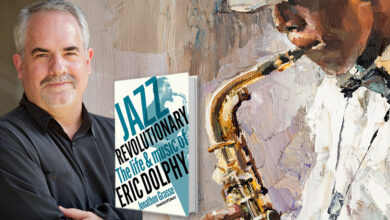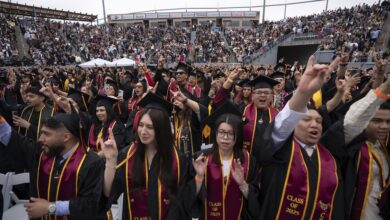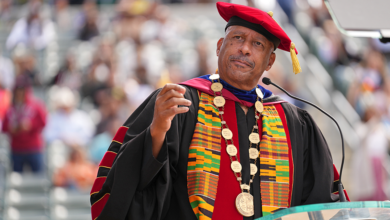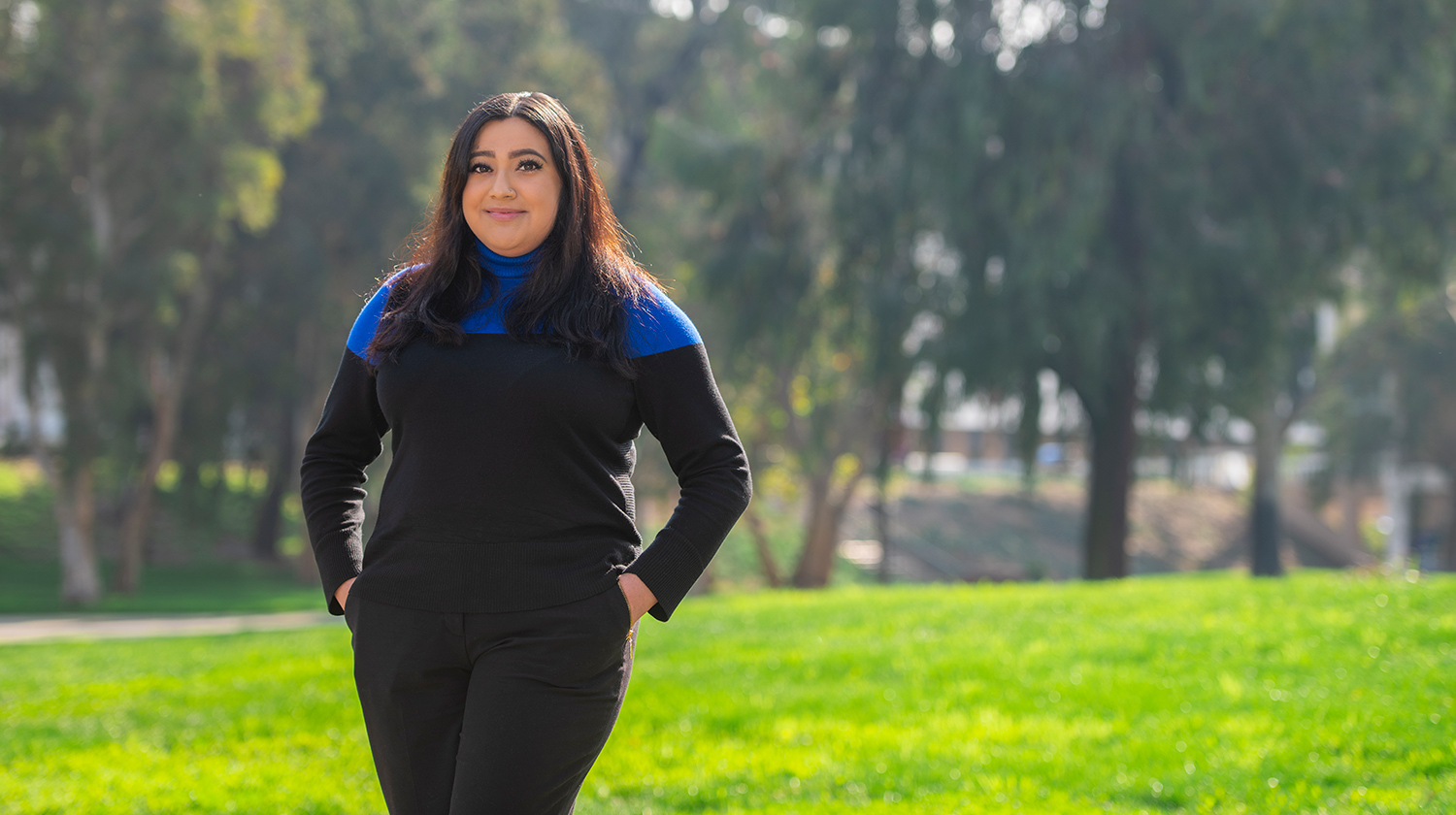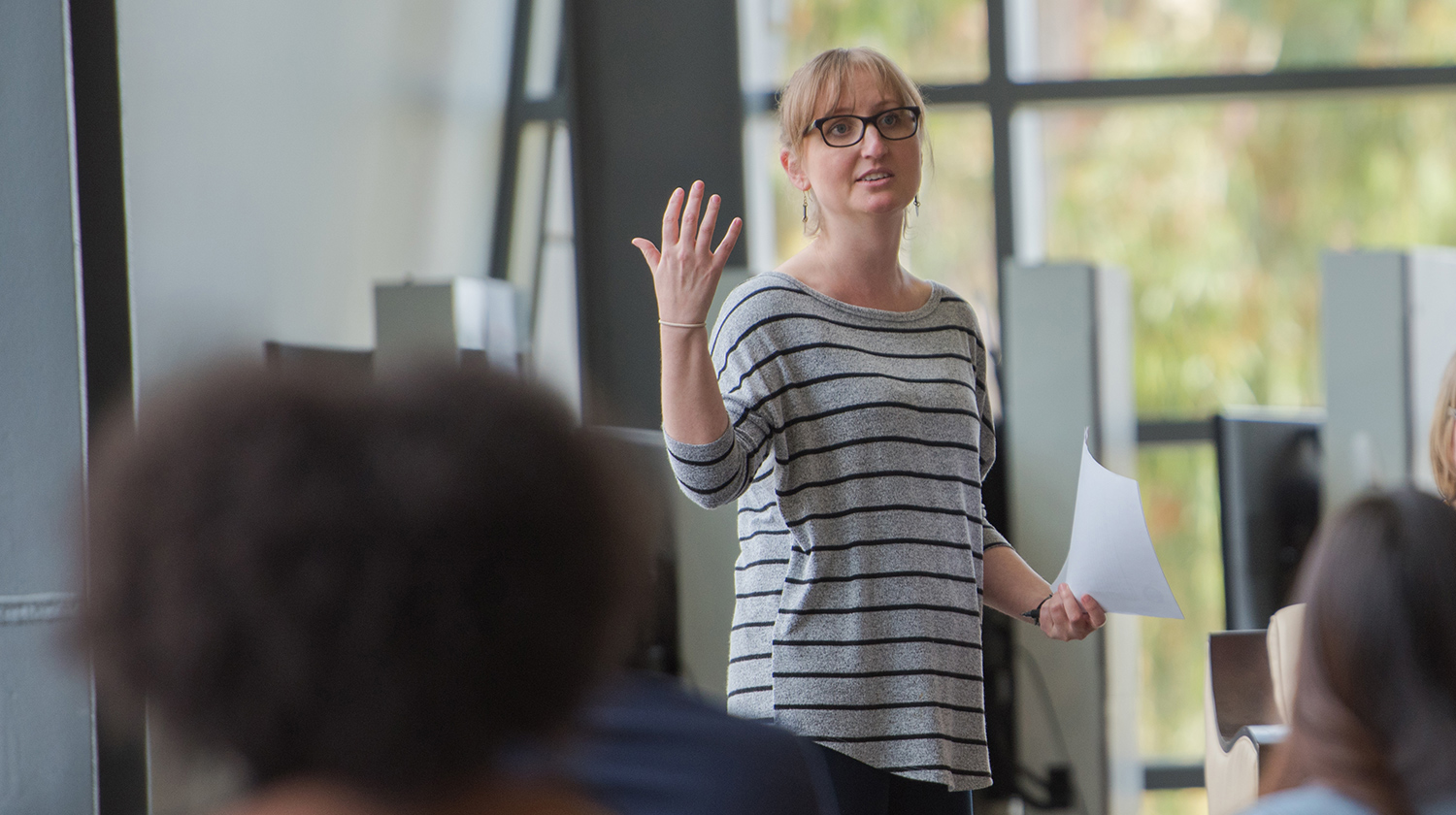
Ryan Bowles Eagle doesn’t just research and teach media activism–she considers teaching as a form of activism, as well. “The activism that I get to do is through my teaching, through what I can do to build up our students, who have so much to contribute, whose voices are so important and needed in media,” she says.
Bowles Eagle, an assistant professor of communications at California State University, Dominguez Hills (CSUDH), and program director of the Film, Television, and Media (FTVM) program, wants her students to use what they learn in her courses to help change the media landscape.
“I see our students as having the potential to be change-makers in media storytelling,” she says. “If I can help them see in themselves what I see in them, I know that they have all the potential in the world to make that kind of change.”
Her teaching has been recognized by CSUDH, as Bowles Eagle has been presented with the 2020 Lyle E. Gibson Distinguished Teacher Award. The honor recognizes faculty who manifest in their teaching an understanding of broad areas of knowledge, and whose teaching is not only exemplary and demonstrates an active interest in student progress, but also seeks new and creative ways to engage them.
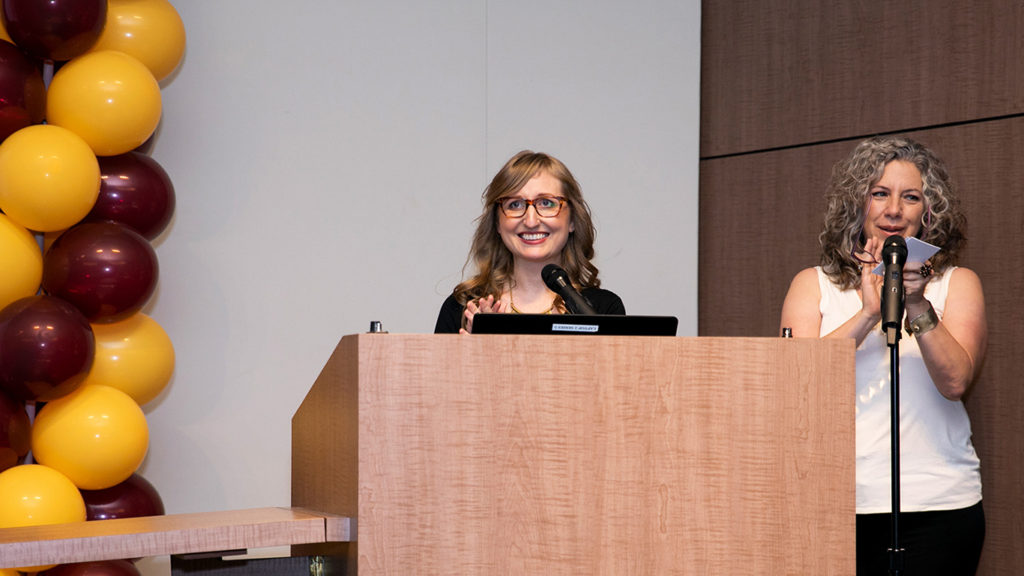
In addition to teaching classes, Bowles Eagle helped design the FTVM program and curriculum, which officially launched in fall 2018. Having collaborated on the creation of the program, she is understandably enthusiastic about its direction. “We’re teaching students how to think about the importance of telling media stories and to recognize decisions that media creators make about the stories that they tell,” she says. “How do they tell stories? Whose stories get told at all?”
In courses such as Media and Representation, Media Audiences, and Global Media, Bowles Eagle encourages her students to analyze and interpret the stories they find in the media. Once students understand what stories are being told and how they are being presented, they are empowered with the skills they need to express their own voices across the media landscape.
“I really try to use my teaching at Dominguez as a way to give our students the tools to start to notice problematic patterns of representation that we see happen across film and television, because I think that our students are exactly the people who can be the kind of creators, decision makers, and audiences who can support telling better, different, and important stories.”
Deep Knowledge, Deep Understanding
Bowles Eagle began her journey in higher education at the University of Southern California, where she earned dual bachelor’s degrees in Cinema-Television and Creative Writing. She then studied abroad in England, attaining a master’s degree in Modern Literature and Culture at the University of York.
She returned to California to pursue her studies at the University of California, Santa Barbara, where she earned a master’s degree and Ph.D. in Film and Media Studies, with a doctoral emphasis in Feminist Studies. She has also worked in independent documentary production.
Her primary research areas concern issues of media activism, documentary film, and feminist media studies. Bowles Eagle has had her work published in Feminist Media Studies, European Journal of Cultural Studies, Media Fields Journal, Red Feather Journal, and Social Semiotics. She joined the faculty at CSUDH in 2013.
Bowles Eagle finds teaching at CSUDH particularly rewarding. “Our students at Dominguez Hills are really remarkable,” she says. “They have the potential to change the way that other people see themselves and see the world, if they’re able to tell their stories.”
Bowles Eagle’s teaching philosophy revolves around what she calls “The Six E’s:” empathy, equity, enthusiasm, expectations, expertise, and exchange. “I see these six priorities as being at the center of what I try to do and who I try to be in the classroom and in all my interactions with students,” she says.
During the COVID-19 crisis, her emphasis on empathy has been a driving force behind Bowles Eagle’s conversion to online instruction. “Everyone is facing different, and unprecedented, challenges–whether it’s access to technology, not having adequate study space, job loss or loss of income, balancing caretaker duties with schoolwork–as well as the general stress and anxiety that comes with a global pandemic.”
“When we went online, the first thing I did was share a video with all my students checking in with them and expressing concern for their well-being,” says Bowles Eagle. “I’ve tried to use my role as instructor to be as reassuring, encouraging, supportive, and flexible as possible.”
Students appreciate her style and philosophy, which is one of the main reasons Bowles Eagle has been awarded the Distinguished Teacher Award. She says that some of the best moments of the nomination process were when she was able to read what current and former students had to say about her work.
“Getting to see what my students think about my teaching was rewarding in itself,” says Bowles Eagle. “They know that I value them, and that I believe in them. I think that’s what helps people, ultimately –knowing that you see them as an individual and care who they are and know that they matter. Really, that’s what all of us are here for.”
“Even being nominated was really exciting,” says Bowles Eagle. “Then, when I found out I had won, I was absolutely floored. Because other than my family and friends, teaching is the most important thing in my life. It’s really rare to be recognized for something that you care so much about. So that’s been really special for me.”






